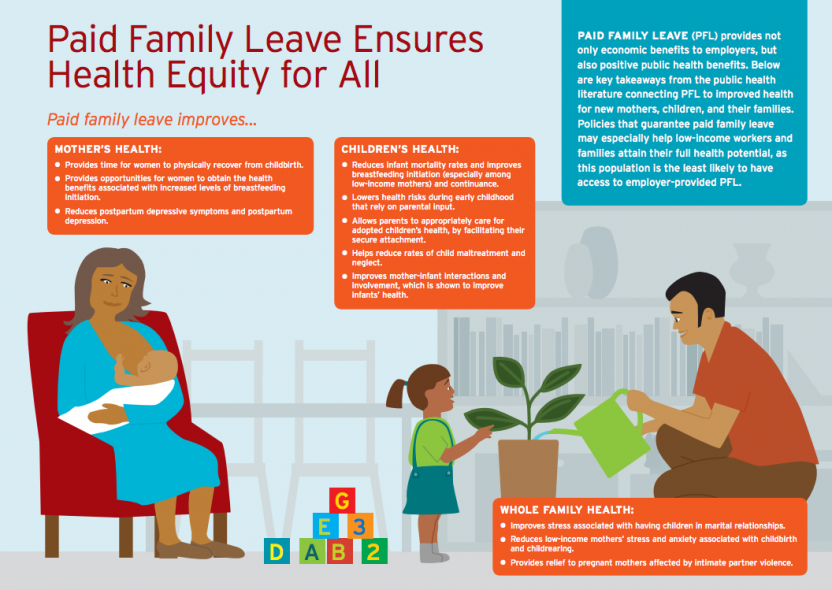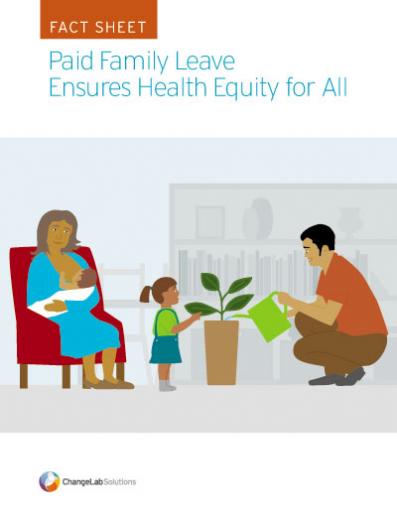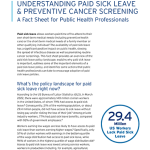Paid Family Leave Ensures Health Equity for All
How paid family leave laws promote health for more working families
What is paid family leave? Paid family leave (PFL) allows employees to take paid time off during pregnancy, after the birth or adoption of a child, or when a young child or other family member needs care.
What are the benefits of PFL? PFL to care for very young children has been shown to have many health-related benefits for mothers, children, and families—for example, increases in health benefits associated with breastfeeding, better mother-child interactions, and decreased maternal and marital stress. These benefits are detailed in ChangeLab Solutions’ new suite of PFL products, available for download below.
Who needs PFL? Many workers must balance pregnancy or caregiving for young children or other family members with work responsibilities. But less than 15% of workers are estimated to have access to PFL, making it difficult for families to attain their full health potential. And low-income employees and workers of color are the least likely to have meaningful access to PFL.
Why is paid family leave important? Although federal law requires many businesses to provide unpaid family leave, many low-wage workers cannot afford to take unpaid leave, so low-wage workers often miss out on the health benefits associated with family leave.
How does PFL increase health equity? PFL can promote health equity in a variety of ways. Mothers who take longer leaves from work are more likely to breastfeed and to breastfeed for longer. Studies indicate that breastfeeding reduces the risk and rate of infant mortality, a key indicator of population health. However, research over the last 2 decades shows that white, high-earning women are more likely to initiate breastfeeding than women of any other racial or socioeconomic group. Research also suggests that the rate of infant mortality among black mothers has more than doubled in the past 10 years. Paid leave, in contrast to unpaid leave, has been shown to reduce infant mortality and improve other health outcomes for children. Instituting state-level PFL policies, therefore, has great potential to positively affect health equity.
What resources are available on PFL? ChangeLab Solutions has developed a fact sheet, a literature review, and an infographic detailing the positive health effects of PFL for families, young children, and new mothers. The fact sheet highlights these health benefits and provides an overview of the equity-enhancing components of current state PFL laws. The literature review provides a more in-depth summary of the public health literature on the health benefits of PFL. And the infographic provides a visual summary of the key health benefits of PFL discussed in both the fact sheet and the literature review. Download all 3!
Contact us for more information on implementing PFL in your state.






